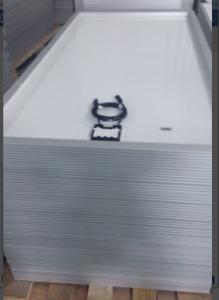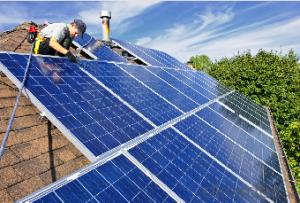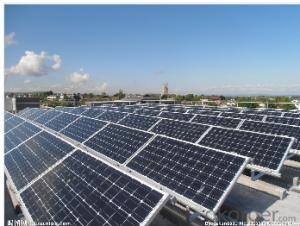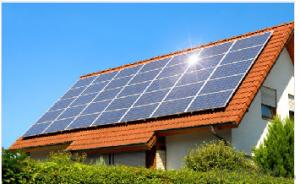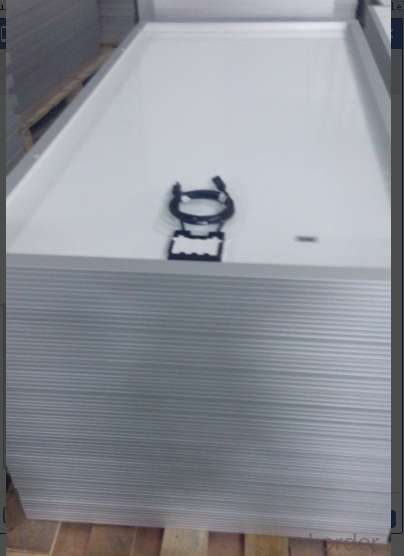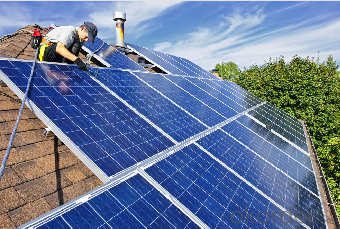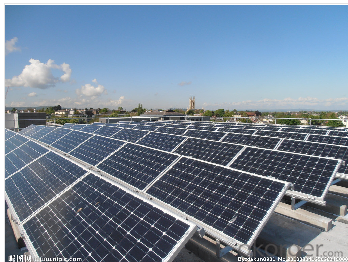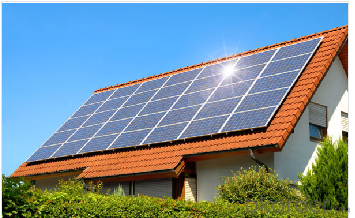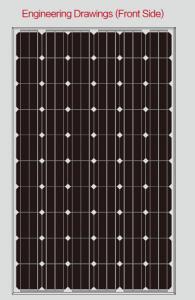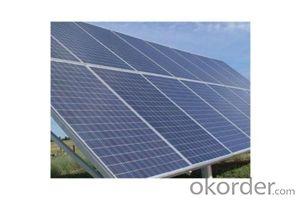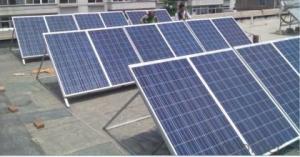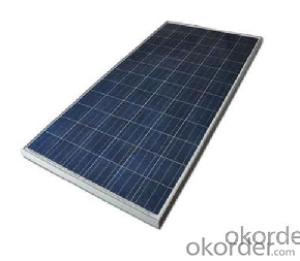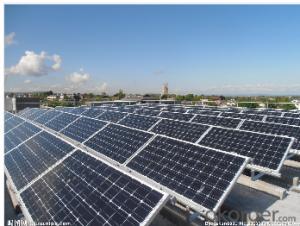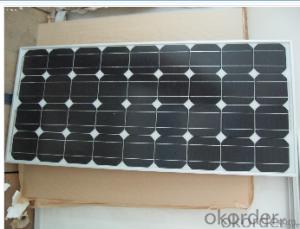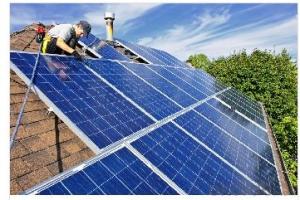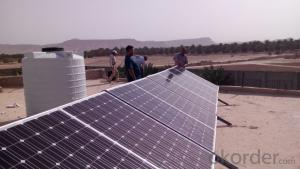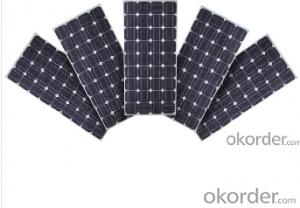Solar Panels Newcastle - High Quality Solar Module from CNBM
- Loading Port:
- Shanghai
- Payment Terms:
- TT or LC
- Min Order Qty:
- 1 pc
- Supply Capability:
- 100000000 pc/month
OKorder Service Pledge
OKorder Financial Service
You Might Also Like
Product Description:
Solar Module
ABOUT YINGLI GREEN ENERGY
Yingli Green Energy Holding Company Limited (NYSE: YGE) is one of
the world’s largest fully vertically integrated PV manufacturers, which
markets its products under the brand “Yingli Solar“. With over 7.0GW
of modules installed globally, we are a leading solar energy company
built upon proven product reliability and sustainable performance. We
are the fi rst renewable energy company and the fi rst Chinese company
to sponsor the FIFA World CupTM.
PERFORMANCE
- High effi ciency, multicrystalline silicon solar cells with high transmission
and textured glass deliver a module effi ciency of up to 16.0%,
minimizing installation costs and maximizing the kWh output of your
system per unit area.
- Tight positive power tolerance of 0W to +5W ensures you receive
modules at or above nameplate power and contributes to minimizing
module mismatch losses leading to improved system yield.
- Top ranking in the “TÜV Rheinland Energy Yield Test” and the
“PHOTON Test” demonstrates high performance and annual energy
production.
RELIABILITY
- Tests by independent laboratories prove that Yingli Solar modules:
Fully conform to certifi cation and regulatory standards.
Withstand wind loads of up to 2.4kPa and snow loads of up to
5.4kPa, confi rming mechanical stability.
Successfully endure ammonia and salt-mist exposure at the highest
severity level, ensuring their performance in adverse conditions.
- Manufacturing facility certifi ed by TÜV Rheinland to ISO 9001:2008,
ISO 14001:2004 and BS OHSAS 18001:2007.
WARRANTIES
- 10-year limited product warranty1.
- Limited power warranty1: 10 years at 91.2% of the minimal rated power
output, 25 years at 80.7% of the minimal rated power output.
1In compliance with our Warranty Terms and Conditions.
QUALIFICATIONS & CERTIFICATES
IEC 61215, IEC 61730, MCS, CE, ISO 9001:2008, ISO 14001:2004, BS OHSAS
18001:2007, PV Cycle, SA 8000
ELECTRICAL PERFORMANCE
Electrical parameters at Standard Test Conditions (STC)
Module type YLxxxP-29b (xxx=Pmax)
Power output Pmax W 260 255 250 245 240
Power output tolerances ΔPmax W 0 / + 5
Module effi ciency ηm % 16.0 15.7 15.4 15.1 14.8
Voltage at Pmax Vmpp V 30.3 30.0 29.8 29.6 29.3
Current at Pmax Impp A 8.59 8.49 8.39 8.28 8.18
Open-circuit voltage Voc V 37.7 37.7 37.6 37.5 37.5
Short-circuit current Isc A 9.09 9.01 8.92 8.83 8.75
Electrical parameters at Nominal Operating Cell Temperature (NOCT)
Power output Pmax W 189.7 186.0 182.4 178.7 175.1
Voltage at Pmax Vmpp V 27.6 27.4 27.2 27.0 26.8
Current at Pmax Impp A 6.87 6.79 6.71 6.62 6.54
Open-circuit voltage Voc V 34.8 34.8 34.7 34.6 34.6
Short-circuit current Isc A 7.35 7.28 7.21 7.14 7.07
STC: 1000W/m2 irradiance, 25°C cell temperature, AM1.5g spectrum according to EN 60904-3.
Average relative effi ciency reduction of 3.3% at 200W/m2 according to EN 60904-1.
NOCT: open-circuit module operation temperature at 800W/m2 irradiance, 20°C ambient temperature, 1m/s wind speed.
OPERATING CONDITIONS
Max. system voltage 1000VDC
Max. series fuse rating 15A
Limiting reverse current 15A
Operating temperature range -40°C to 85°C
Max. static load, front (e.g., snow) 5400Pa
Max. static load, back (e.g., wind) 2400Pa
Max. hailstone impact (diameter / velocity) 25mm / 23m/s
CONSTRUCTION MATERIALS
Front cover (material / thickness) low-iron tempered glass / 3.2mm
Cell (quantity / material / dimensions /
number of busbars)
60 / multicrystalline silicon / 156mm x 156mm / 2 or 3
Encapsulant (material) ethylene vinyl acetate (EVA)
Frame (material / color / anodization color /
edge sealing) anodized aluminum alloy / silver / clear / silicone or tape
Junction box (protection degree) ≥ IP65
Cable (length / cross-sectional area) 1000mm / 4mm2
Plug connector
(type / protection degree) MC4 / IP67 or YT08-1 / IP67 or Amphenol H4 / IP68
PACKAGING SPECIFICATIONS
Number of modules per pallet 29
Number of pallets per 40' container 28
Packaging box dimensions
(L / W / H) 1700mm / 1135mm / 1165mm
Box weight 568kg
Unit: mm
• Due to continuous innovation, research and product improvement, the specifi cations in this product information sheet are subject to change
without prior notice. The specifi cations may deviate slightly and are not guaranteed.
• The data do not refer to a single module and they are not part of the offer, they only serve for comparison to different module types
IMAGES:
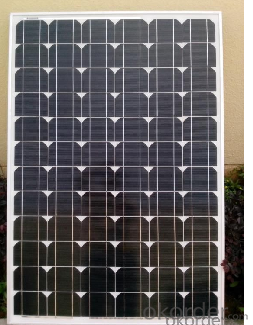
WHAT'S THE ADVANTAGES OF CNBM?
1.CNBM is a state-owned company under jurisdiction of central goverment , one of Fortune 500 .Just because of this ,we can get more support and resources from our government.So ,it is realiable .
2.CNBM's solar products are high-qualified with TUV,UL,VDE,CE,ISO certificates. Our products ranges top in China.
3.Just as I mentioned in attahment ,we signed 500MW project with Urkan under the witness of our chairman Xi Jinping ,CNBM has ability to meet your large quantity needs,Our annual capacity is 1GW.
- Q: Solar panels which is the one produces the power...I wanna the complete description about it...
- If your meter is actually running backwards, then you already have a credit. You must have a huge system, or not use much power at all. Most systems I have seen will at best just cut some percentage of the power used, primarily because the system only produces peak a few hours a day and power is being used 24/7.
- Q: Can solar panels be installed on a metal roof?
- Yes, solar panels can be installed on a metal roof. In fact, metal roofs are often considered ideal for solar panel installations due to their durability, longevity, and compatibility with the mounting systems. Metal roofs provide a stable and secure foundation for solar panels, ensuring optimal performance and longevity of the system.
- Q: Can solar panels be used in areas with high levels of air turbulence or strong winds?
- Yes, solar panels can be used in areas with high levels of air turbulence or strong winds. However, it is important to ensure that the solar panel installation is designed and built to withstand these conditions. Proper mounting systems and structural support can be implemented to secure the panels and minimize any potential damage caused by strong winds. Additionally, choosing robust and durable panels can further enhance their ability to withstand turbulent air or high wind speeds.
- Q: Can solar panels be used to power a concert venue?
- Yes, solar panels can be used to power a concert venue. Solar panels can generate electricity from sunlight, which can then be used to power various electrical systems in a concert venue, including lighting, sound systems, and other equipment. Additionally, the excess electricity generated by solar panels can be stored in batteries for use during periods of low sunlight or high energy demand. By utilizing solar panels, concert venues can reduce their carbon footprint and contribute to a more sustainable and environmentally-friendly energy source.
- Q: I'm part of the Sustainability group at school, the school principal is a d**k and doesn't care about the environment, he only cares about money.Me and the group will be talking in front of him and the school council (the people in-charge of the school's money) To convince them to put solar panels on the school roofs.I know that it definitely will help the school save on electricity bills, but it WILL cost a lot of money to put them in.In the end we just wanna reduce carbon emissions!HELP :)
- Show live examples such as those in Northern CA where the schools working with private industry funded a complete solar installation for a school district. Yes it can be done!
- Q: i am looking for solar panels and wind mill to put around our house and i was wondering were to find them
- Your best bet would be to go down to a place that has magazines and look through their solar magazines, like Solar Today and Home Power. In these you'll will find many places online where you can buy solar and wind power products. They also have good reviews so that you can be an informed consumer and don't end up buying poor quality products. I've seen performance reviews on a variety of models.
- Q: Can solar panels be installed on water pumps?
- Yes, solar panels can be installed on water pumps. Solar-powered water pumps are becoming increasingly popular and are a sustainable solution for providing water in remote areas or off-grid locations. These pumps use solar energy to power their operation, making them environmentally friendly and cost-effective in the long run.
- Q: I'm curious, for those who have had solar panels installed on the rooves of their houses:How much did you pay? How much energy do the panels produce? Did it dramatically cut down on your electricity bill? Was it worth it? Thanks!
- I say yes, I had a system put in a few months ago. I paid $6K and my utility paid $0K. I should break even in about 6 years. The system is guaranteed for 25 years, so I will have at least 9 years of free energy. I went from a bill of around $200 per month to under $20 in the summer. I will pay a little more in the winter months because less daylight, but I don't use as much energy in the winter. Each year electricity goes up an average of 5%, so while my neighbors have a larger bill each month, I'll be staying under $50 for a long time. Even without the rebate I would have a break even time of about 0 years, still 5 years of free energy.
- Q: Someone Said It costed them 50,000 To Install Solar Panel In their House and 35,000 For Installation. Is that true?
- Are they saying that the panels cost $5k and the installation cost $35k? Or are they saying the panels were $50k, plus another $35k for installation, making the total $85k? Possibly the data was from several years ago. $5k buys 6 kW of panels today, larger than goes on most houses. Installation depends on local labor costs, but should not be more than about $5k in the US, unless the system is huge, or unusual, such as a standalone system on a concrete pad, instead of just on the roof. The system on our roof is roughly 3 kilowatts. If installed today, the parts would cost about $9k. After federal tax credit, $7k. Labor depends on the local situation. We installed our own, so didn't pay any labor cost.
- Q: How do solar panels affect the property's sustainable development goals?
- Solar panels can have a positive impact on a property's sustainable development goals by reducing the reliance on non-renewable energy sources and decreasing carbon emissions. They provide a clean and renewable energy source, contributing to the property's overall sustainability and helping to achieve goals related to energy efficiency and environmental conservation.
Send your message to us
Solar Panels Newcastle - High Quality Solar Module from CNBM
- Loading Port:
- Shanghai
- Payment Terms:
- TT or LC
- Min Order Qty:
- 1 pc
- Supply Capability:
- 100000000 pc/month
OKorder Service Pledge
OKorder Financial Service
Similar products
Hot products
Hot Searches
Related keywords
